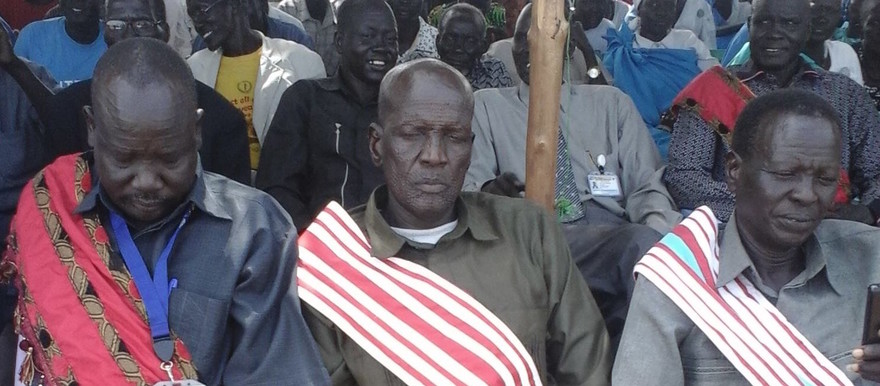Leaders of the traditional courts in the UN Protection of Civilians (PoC) sites in Juba have agreed that anyone who is planning to marry before their court will pay at most the monetary equivalent of fifteen cows.
Most of the residents of the UN PoCs in Juba are ethnic Nuers who took refuge with the UN after violence in Juba in December 2013. The Nuer are traditionally cattle-keeping people who pay cattle as dowry but urbanization and the conflict many off from their families’ herds.
Nuer citizens often have fled to the PoCs without their possessions and leaving behind jobs or job prospects in government or the private sector, leaving them dependent on humanitarian handouts. The poverty that has consequently struck many PoC residents since the conflict has led to changing marriage practices and changed expectations as to dowry payment.
Sometimes family may pay only a kind of advance, with the rest expected to be paid after the conflict ends, or some couples may elope. But the traditional leaders are trying to uphold a certain standard while still making marriage possible within the nearly three-year old camps.
Thomas Wuol Batheng, a member of the court in the PoC3 says all residents in the camps can pay as much as they can to their in-laws if they don’t disagree. He say if they failed to settle their marriage the family of the bridegroom will be asked to pay a maximum of 15 cows which should be paid in form of money because there are no cattle in the camp.
The court has also put all cows at the same value — each cow is equated to two thousand pounds, which mean the fifteen cows cost thirty thousand (30,000 SSP). But Batheng said if the two families agreed on any amount of cash like 100,000 or 60,000 SSP then the court will not interfere because it is their mutual agreement which does not bring any quarrels.
Samuel Lam Dual, another chief in the PoC expressed concerns that young people today don’t look into the background of the people they want to marry to, saying the Nuer culture demands adequate preparation before the actual marriage which includes assessing of your partner, their family history, etc.
Before the crisis in 2013 the Nuer manual customary laws of Pangak put dowry at 25 cows if there was a disagreement between the two families. The recent change represents a revision of this standard.
File photo: Traditional chiefs in Juba PoC in August 2015




